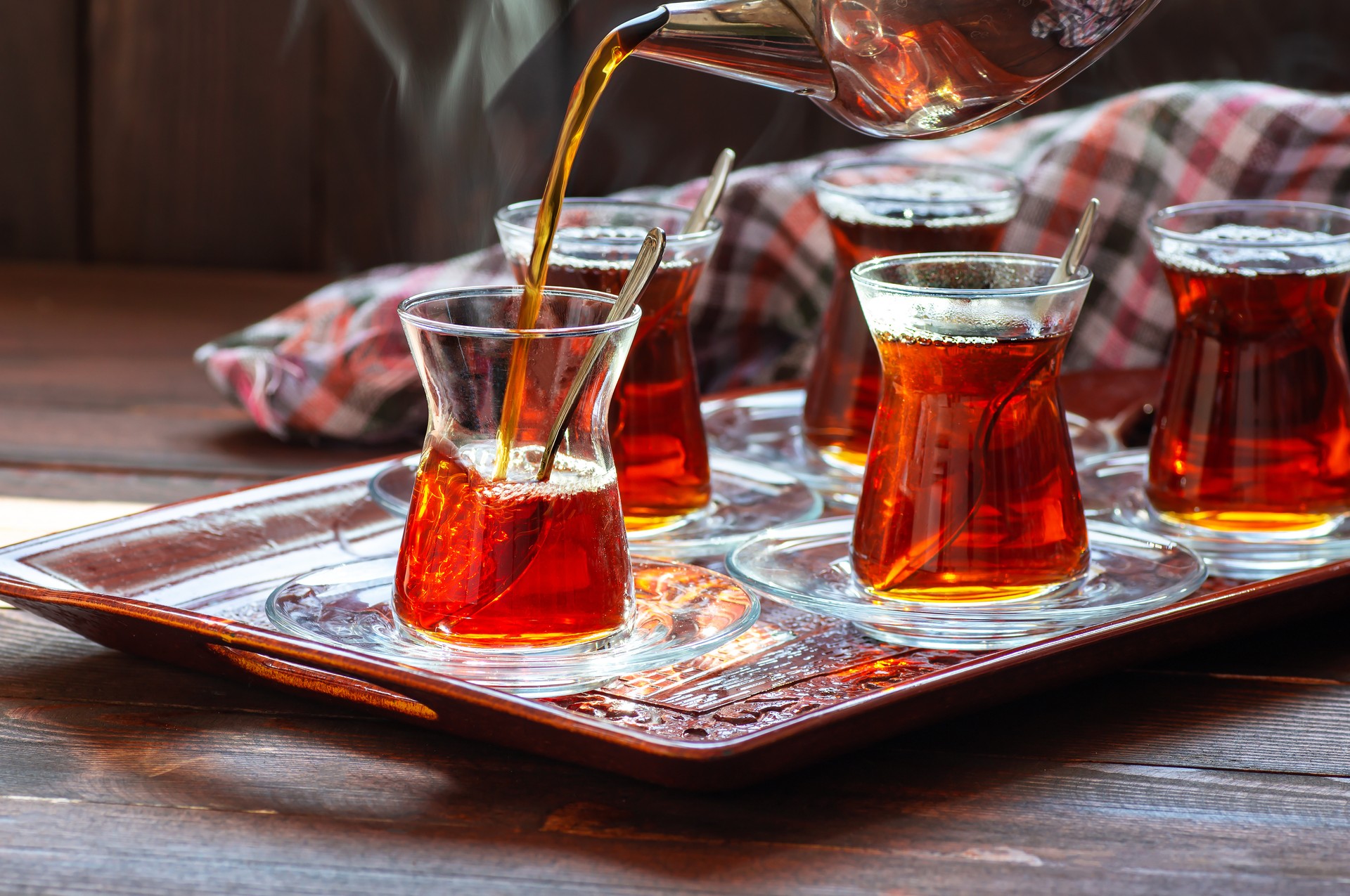
Turkish tea is more than just a beverage; it is an integral part of Turkish identity and hospitality. Rooted in centuries-old traditions, tea has become a cultural symbol, reflecting not only taste but also social interaction and the philosophy of sharing.
The Turkish people have consistently adapted and refined new cultural elements, shaping them to fit their own way of life, and tea is no exception.
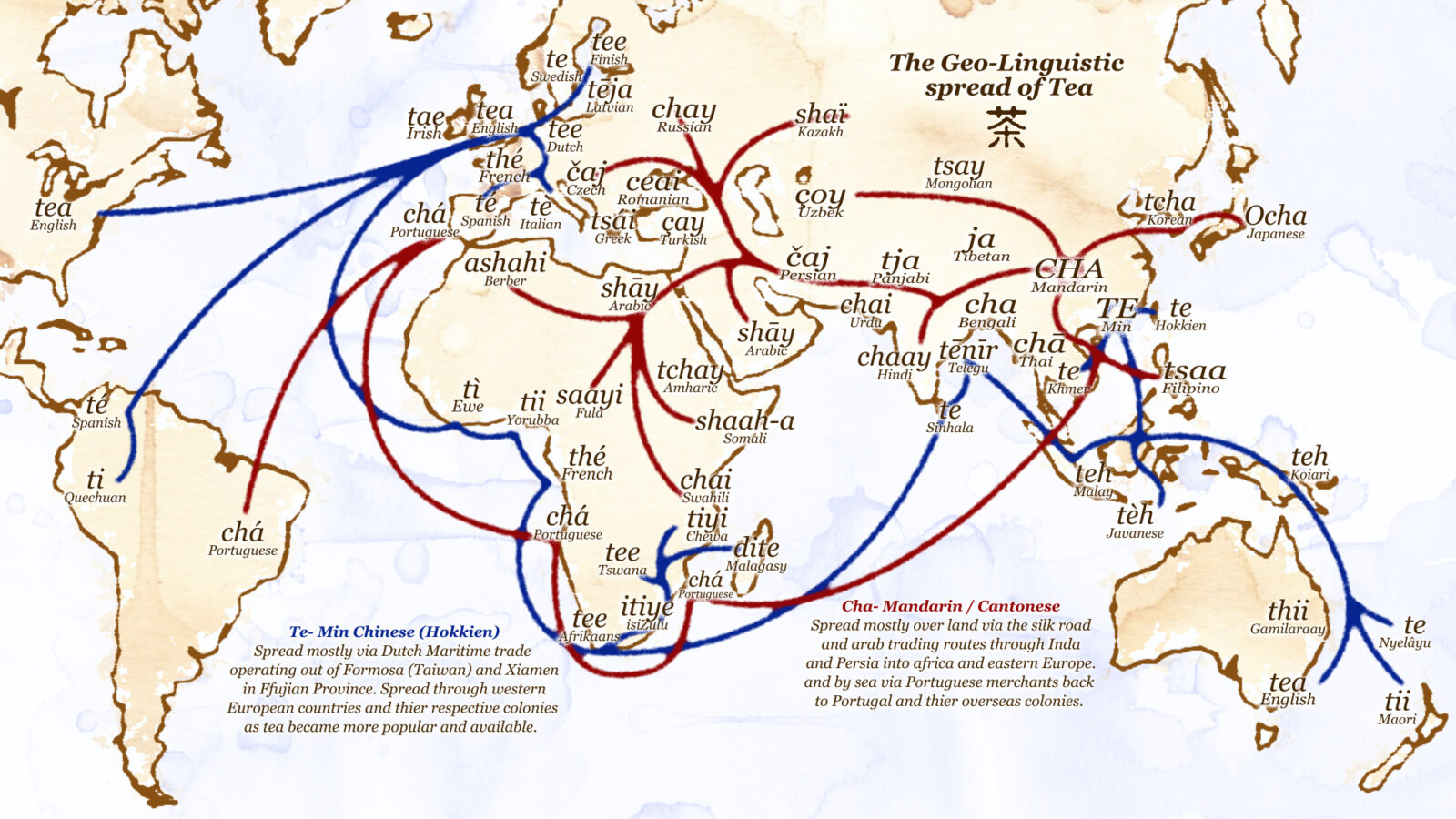
The linguistic journey of the word "tea" is fascinating. The book From "Garden to Thin-Waisted Glass: Turkish Tea" states that the word "cay" originates from the Mongolian "chai," which itself was derived from Northern Chinese dialects where tea leaves were called "cha-ye."
The pronunciation of "tea" varies across different regions. Eastern and Balkan countries tend to use a form close to "cha," whereas Western and Northern European languages favor "te." Since Arabic lacks the "ch" sound, Arabs call tea "shay." The pronunciation of tea in different countries largely depends on whether it was introduced via land routes (cha) or maritime trade (tea).
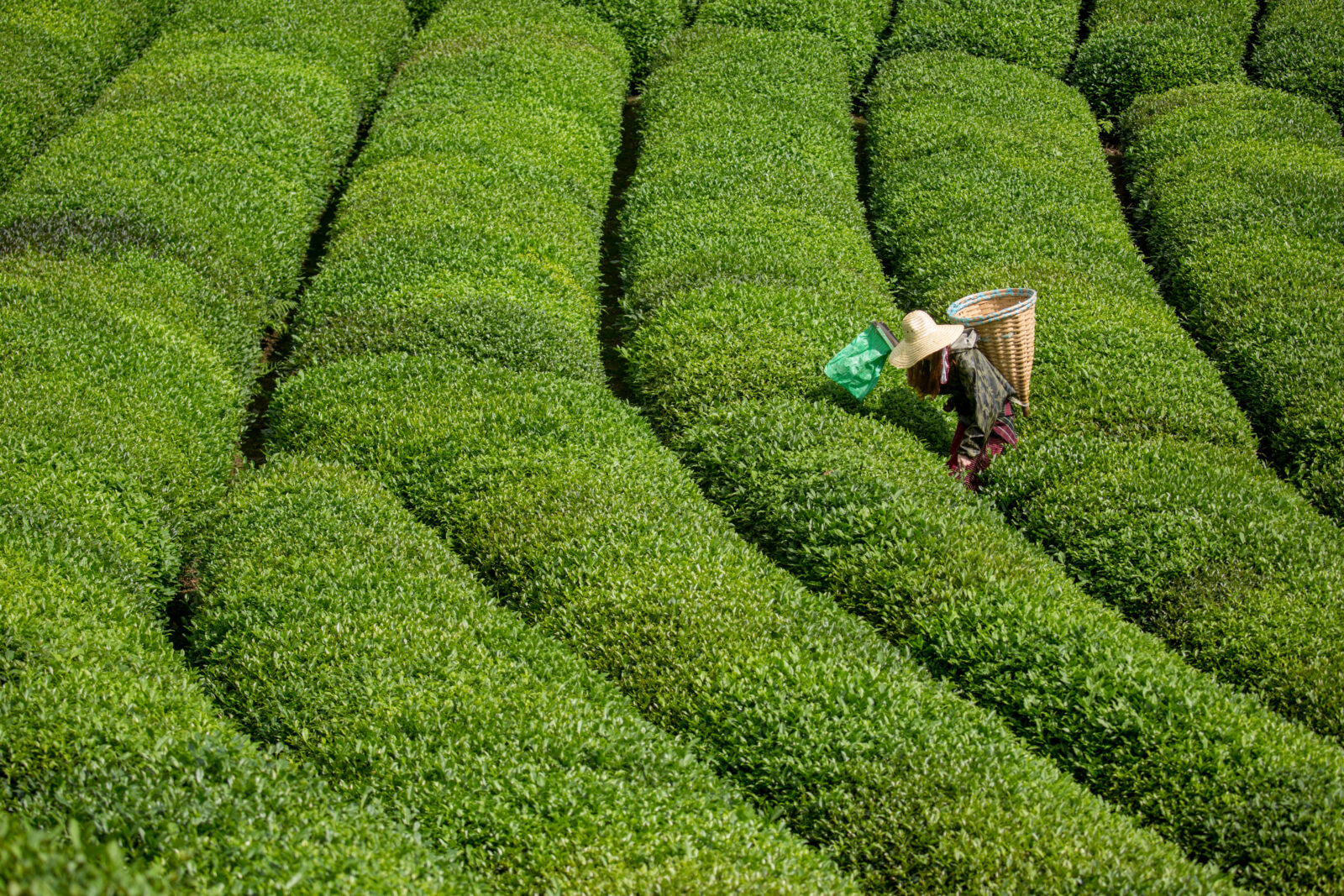
The earliest recorded use of tea dates back thousands of years. The famous Japanese scholar Okakura Kakuzo recounts a legend attributing the discovery of tea to Shen Nung, the father of Chinese medicine, around 2,690 B.C.
According to the tale, Shen Nung noticed tea leaves falling into boiling water, creating an aromatic infusion that he found refreshing. This marked the beginning of tea as a brewed beverage.
Selim Kazan, a dedicated tea farmer from Trabzon, and his family share their daily life in the tea fields with Türkiye Today, July 23, 2024. (Video created by Samet Doger/Türkiye Today)
Although tea consumption in Türkiye has a long history, tea cultivation faced numerous challenges. Initial attempts in Bursa in 1888 failed due to unsuitable climatic conditions. However, in 1923, the Turkish government initiated a state-backed project to promote tea farming. The man behind this movement was Zihni Derin, a renowned agronomist who introduced tea seedlings from Batumi to the Rize region.
Despite initial resistance from local farmers, Derin's relentless efforts led to the establishment of the Tea and Hazelnut Directorate in Rize in 1938. A decade later, in 1947, Türkiye's first tea factory was officially opened.
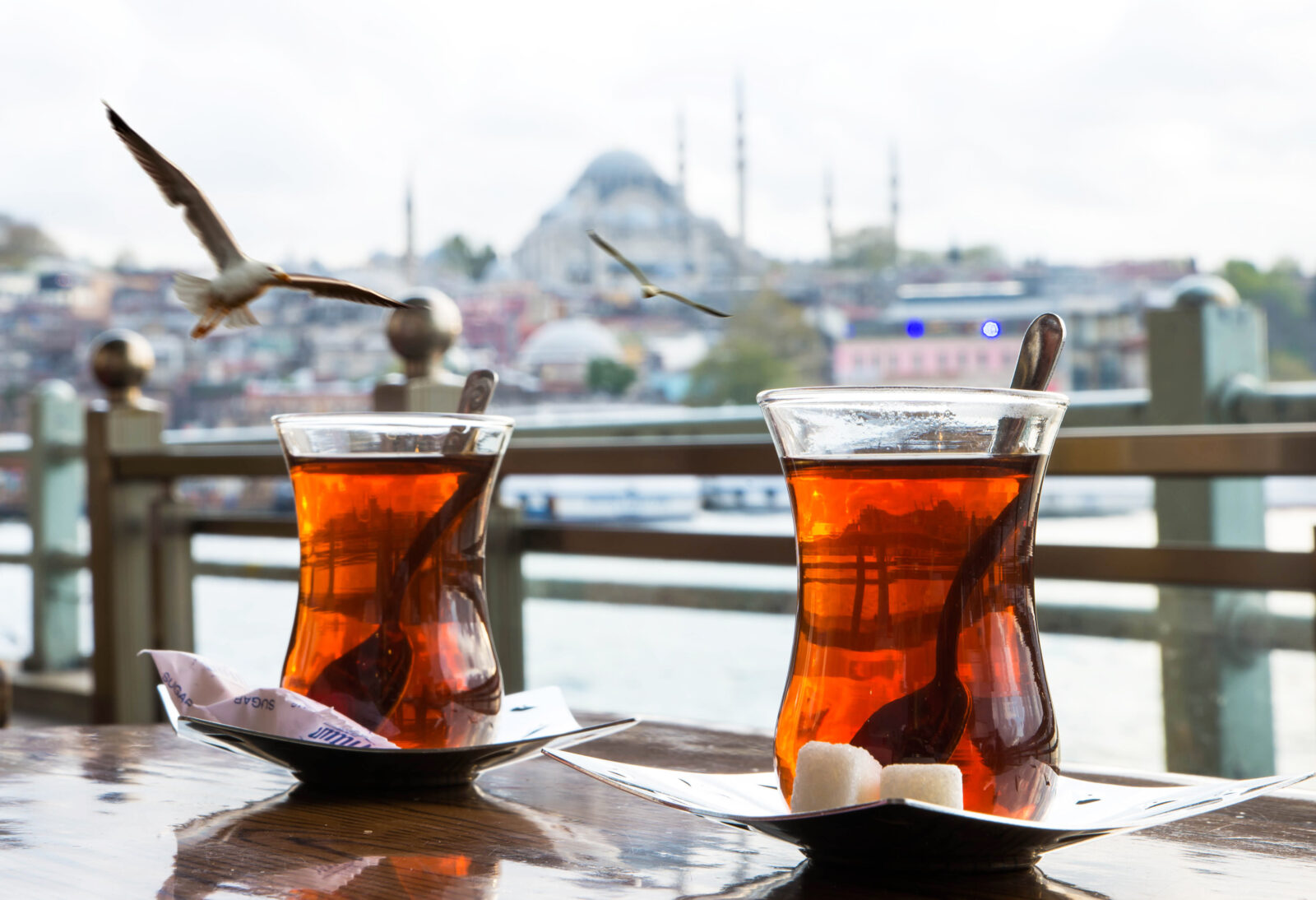
Turkish tea is one of the rare tea varieties grown under snowfall. The tea plants endure long winter months beneath snow, which naturally protects them from pests, eliminating the need for chemical pesticides.
As a result, Turkish tea is considered one of the purest and healthiest teas in the world. The book "Tea Is a Miracle" confirms that Turkish tea contains no pesticide residues, making it a high-quality and eco-friendly option.
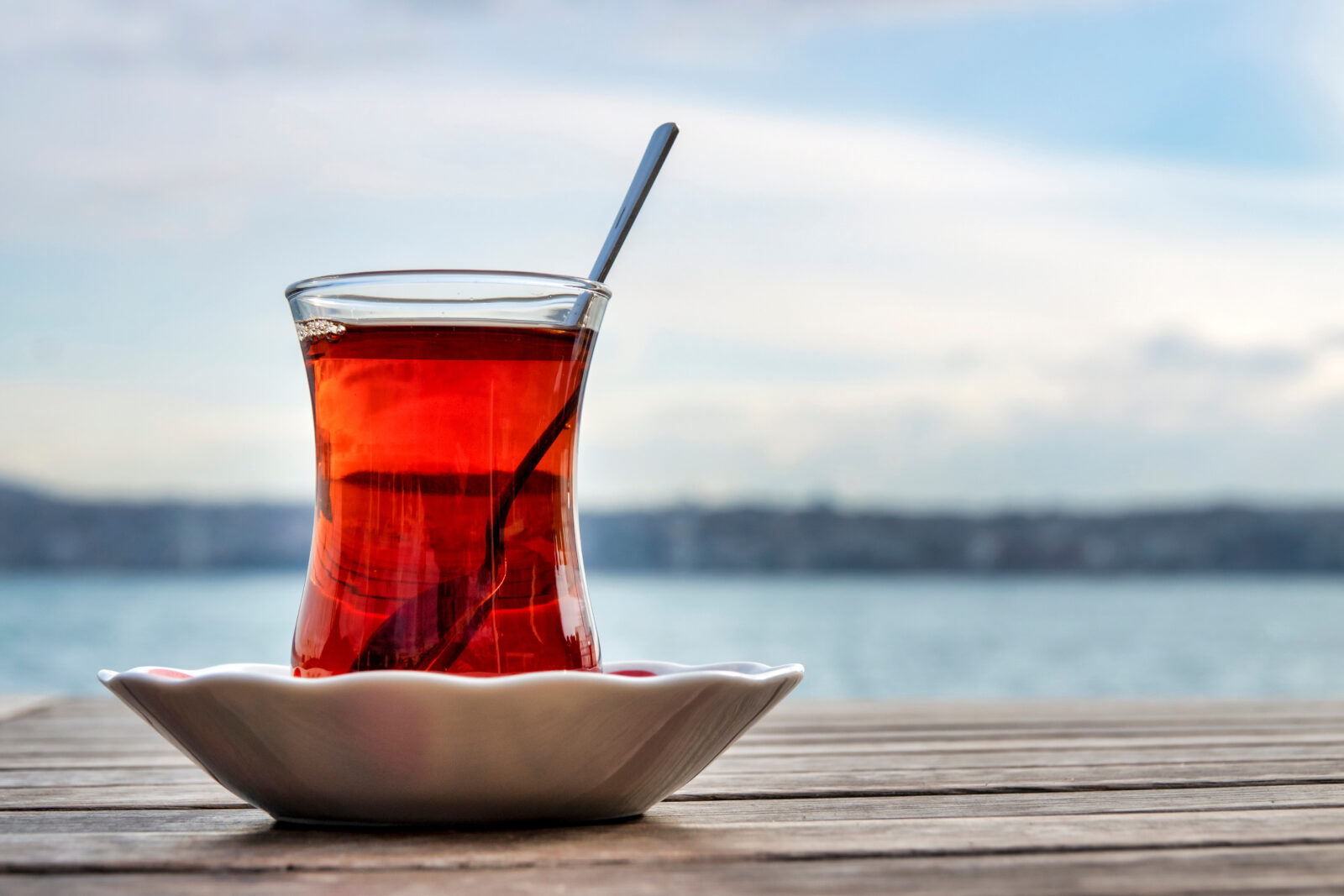
To brew an excellent cup of tea, the quality of the water is crucial. It should be soft, and free of lime and chlorine. Traditional Turkish teapots consist of two sections: a lower kettle for boiling water and an upper pot for brewing tea. This design ensures a rich and flavorful infusion.
Unlike Western tea culture, where brewing time is precisely measured, Turkish tea is brewed intuitively. The tea is considered ready when the leaves settle at the bottom of the pot.
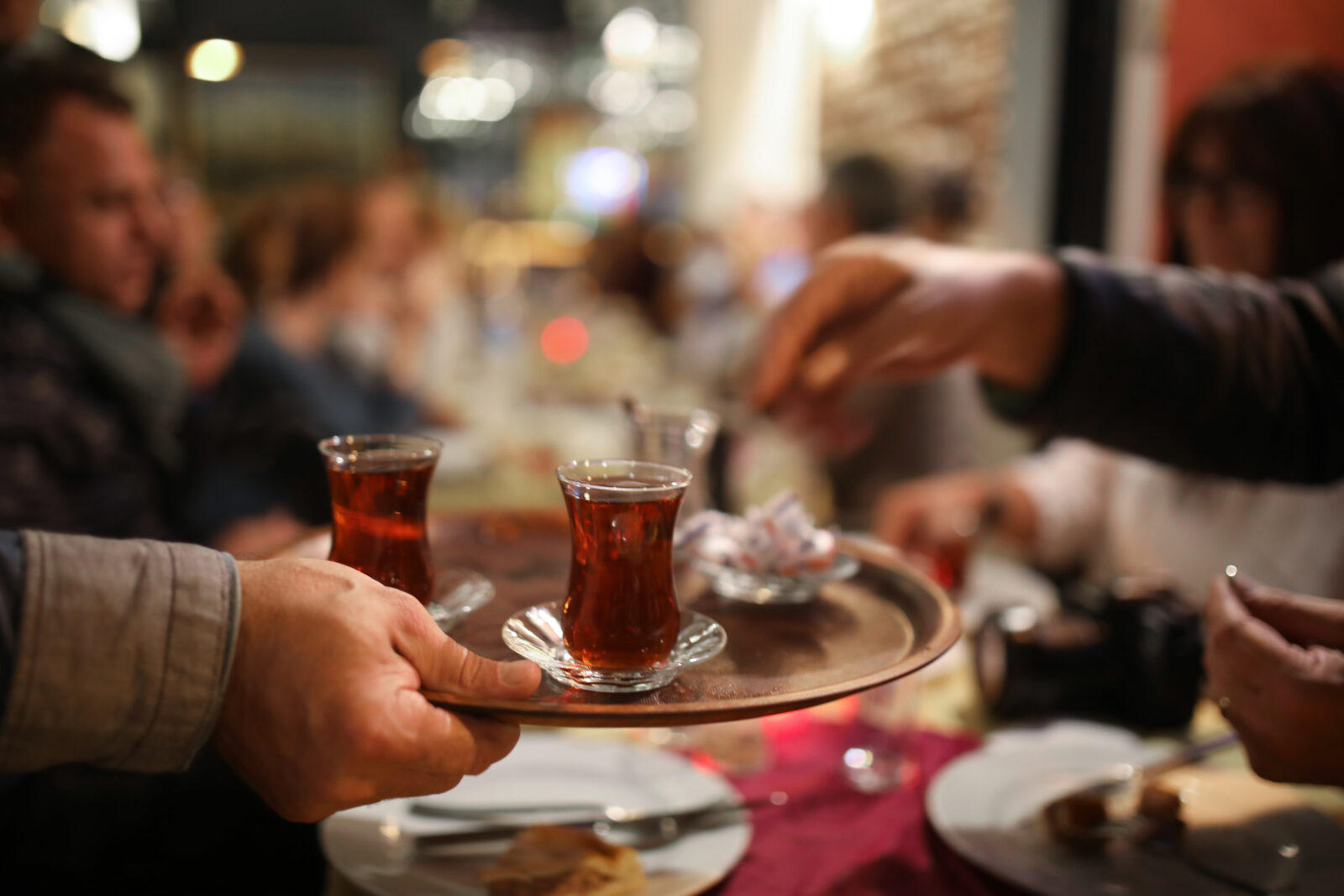
In Türkiye, tea is more than just a drink—it is a reason for social interaction. The phrase "dem almak" (literally "taking a breath") reflects the cultural essence of Turkish tea drinking. Tea is traditionally brewed and consumed at specific times of the day, often coinciding with prayer hours, making it an integral part of daily life.
Homes and workplaces always have tea brewing on a stove, ensuring that it is readily available for guests and colleagues.

Turkish ingenuity is evident not only in tea brewing methods but also in tea-serving utensils.
The iconic "ince belli" (thin-waisted) tea glass is not just an aesthetic choice; its shape retains heat, ensuring that the tea remains warm while being comfortably held. Moreover, the design enhances the aroma, elevating the tea-drinking experience.
Although tea is native to China, the Turks have made significant contributions to its cultural evolution. Just as the traditional method of preparing coffee led to the worldwide recognition of "Turkish Coffee," the unique brewing and serving style of Turkish tea has added depth to global tea culture. While European countries focus on packaging and branding tea as a commercial product, Türkiye has preserved its tea-drinking tradition as a cornerstone of hospitality and social connection.
The evolution of Turkish tea culture exemplifies the nation's ability to embrace and adapt global influences while maintaining its authenticity. In Türkiye, tea is not just a beverage—it is a ritual, a tradition, and a symbol of togetherness for Turks.